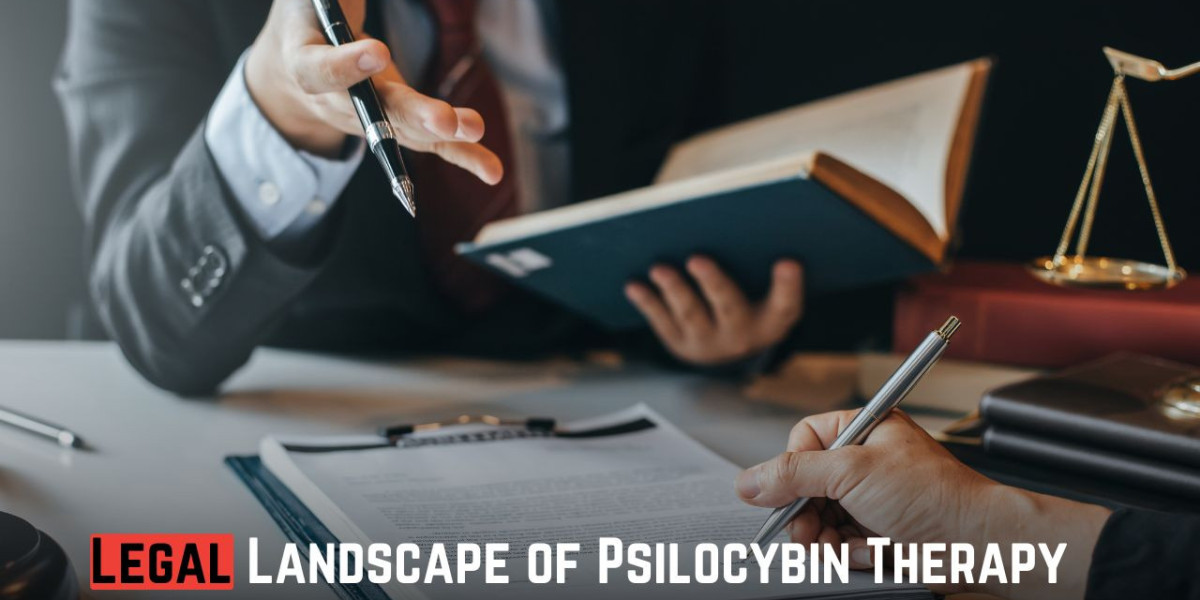In recent years, the subject of psilocybin—an active compound found in certain species of mushrooms—has emerged from the shadows of illicit use and into the spotlight of legitimate scientific research, medical therapy, and even legal debates. Known for its hallucinogenic effects, psilocybin has long been categorized as a Schedule I substance in the United States, meaning it was considered to have no accepted medical use and a high potential for abuse. However, as mental health challenges like depression, PTSD, and anxiety disorders continue to rise, so too has the curiosity surrounding the therapeutic potential of psilocybin. With an increasing body of scientific evidence supporting its efficacy in treating various psychological conditions, the legal landscape of psilocybin therapy is shifting. This article explores the current status of psilocybin therapy, its legal implications, and the future outlook for this promising treatment.
The Psychedelic Renaissance: A Shift in Public Perception
Historically, psychedelics like psilocybin have been associated with the counterculture movements of the 1960s and 1970s. However, in recent decades, there has been a profound shift in how society views these substances. In the wake of a growing mental health crisis, researchers, mental health professionals, and policymakers have begun to take a closer look at the potential therapeutic benefits of psilocybin.
Psilocybin, like other psychedelics such as LSD and MDMA, is classified as a "classic psychedelic." It is known to alter perception, cognition, and emotion, creating a unique state of consciousness. While early studies in the mid-20th century explored its potential for treating various conditions, the criminalization of psychedelics in the 1970s halted much of this research. However, over the past two decades, universities, non-profit organizations, and government bodies have reignited research into psilocybin’s therapeutic applications.
Psilocybin Therapy: What the Science Says
The modern resurgence of interest in psilocybin therapy is driven largely by promising clinical trials and studies. Psilocybin is being explored as a potential treatment for various mental health conditions, including treatment-resistant depression, anxiety, post-traumatic stress disorder (PTSD), and even substance use disorders.
Treatment-Resistant Depression (TRD): One of the most well-documented areas of psilocybin therapy is in the treatment of depression, particularly treatment-resistant depression (TRD). In 2020, a groundbreaking study published in The Lancet Psychiatry showed that psilocybin, when combined with psychotherapy, could have a significant impact on alleviating symptoms of depression in patients who had not responded to conventional antidepressant medications. This study provided a powerful case for psilocybin’s therapeutic potential and furthered public and scientific interest in the compound.
Anxiety and PTSD: Psilocybin has also shown promise in treating anxiety, particularly anxiety associated with terminal illness. In a study conducted by Johns Hopkins University, cancer patients with existential anxiety found that a single dose of psilocybin led to profound reductions in anxiety and depression that lasted for several months. This finding supports the idea that psilocybin can help people face profound existential questions with a sense of peace.
Addiction and Substance Use Disorders: Psilocybin has also been studied as a treatment for addiction, including alcoholism and smoking. Research conducted at institutions like NYU and the University of California has demonstrated that psilocybin, when administered in a controlled setting with therapeutic support, can help individuals overcome addiction. The therapeutic experience, often referred to as a “trip,” can lead to powerful insights and personal transformations that support long-term sobriety.
These studies highlight that psilocybin may offer an alternative to traditional pharmaceutical treatments, which often come with side effects and limited efficacy. Moreover, the therapeutic use of psilocybin typically occurs in a controlled, supportive setting, often in combination with psychotherapy, which further enhances its potential as a treatment modality.
The Legal Status of Psilocybin: A Complex Patchwork
Despite the growing body of research supporting psilocybin’s medical potential, its legal status remains a significant barrier to widespread access. In many parts of the world, psilocybin is still classified as a Schedule I substance under international drug control conventions, which means it is illegal to possess, distribute, or use psilocybin outside of a clinical trial setting.
In the United States, the Drug Enforcement Administration (DEA) classifies psilocybin as a Schedule I drug, alongside substances like heroin and MDMA. This legal classification creates significant obstacles for researchers and clinicians who wish to study or utilize psilocybin in therapeutic settings. However, there are signs of change on the horizon.
Decriminalization Efforts: Over the past few years, several U.S. cities and states have taken steps toward decriminalizing psilocybin, making it a lower law enforcement priority. In 2020, the city of Denver became the first major U.S. city to decriminalize psilocybin, followed by Oakland and Santa Cruz in California. In 2022, Oregon became the first state to legalize psilocybin for therapeutic use, allowing licensed therapists to administer the substance in a controlled, regulated environment. This move was groundbreaking, as it marked a shift in how state-level governments approach the regulation of psilocybin.
Federal Pathways for Medical Use: While psilocybin remains illegal at the federal level, the growing momentum around its therapeutic use has prompted the FDA to grant “breakthrough therapy” status to psilocybin for the treatment of depression. This designation is given to drugs that show substantial improvement over existing treatments in early-stage clinical trials. As a result, companies like Compass Pathways and Usona Institute have been able to conduct large-scale clinical trials, with the hope of eventually obtaining FDA approval for psilocybin as a medical treatment.
Challenges and Opportunities in Psilocybin Regulation
As psilocybin moves toward more widespread acceptance, several challenges remain in its legal and regulatory landscape. One of the key challenges is ensuring that psilocybin therapy is administered safely and responsibly. Unlike traditional pharmaceuticals, psilocybin is a powerful substance that can induce intense psychological experiences. Therefore, it is critical that therapists and clinicians are adequately trained to support individuals through their experiences. Moreover, regulatory bodies must establish robust frameworks to ensure patient safety while preventing misuse or diversion.
Another challenge is the need for further research into the long-term effects and safety of psilocybin therapy. Although early studies show promising results, more data is needed to determine the potential risks and benefits of psilocybin use in various populations.
The Future Outlook: A New Era for Mental Health Treatment?
The future of psilocybin therapy looks promising, with increasing momentum in both research and policy reform. As the body of evidence grows and public opinion shifts, it is likely that we will see more widespread acceptance of psilocybin as a legitimate treatment option for mental health disorders.
Several factors point to a bright future for psilocybin therapy:
Ongoing Research: Continued clinical trials and research will provide more robust evidence of the therapeutic benefits of psilocybin, potentially leading to FDA approval for medical use.
Changing Public Opinion: As society becomes more open to alternative forms of treatment, the stigma surrounding psychedelics continues to decrease. This shift will likely result in greater public support for policy changes.
Global Trends: With countries like Canada and New Zealand exploring the use of psilocybin for medical purposes, global trends may push other countries to reconsider their legal stances.
Conclusion
The legal landscape of psilocybin therapy is evolving rapidly, from a landscape of prohibition and stigma to one of increasing acceptance and potential. As the therapeutic benefits of psilocybin become more evident and research continues to illuminate its efficacy, there is hope that psilocybin will become an essential part of the mental health treatment arsenal. The future of psilocybin therapy is uncertain, but with continued advocacy, research, and responsible regulation, it holds the potential to revolutionize the way we treat mental health disorders.








